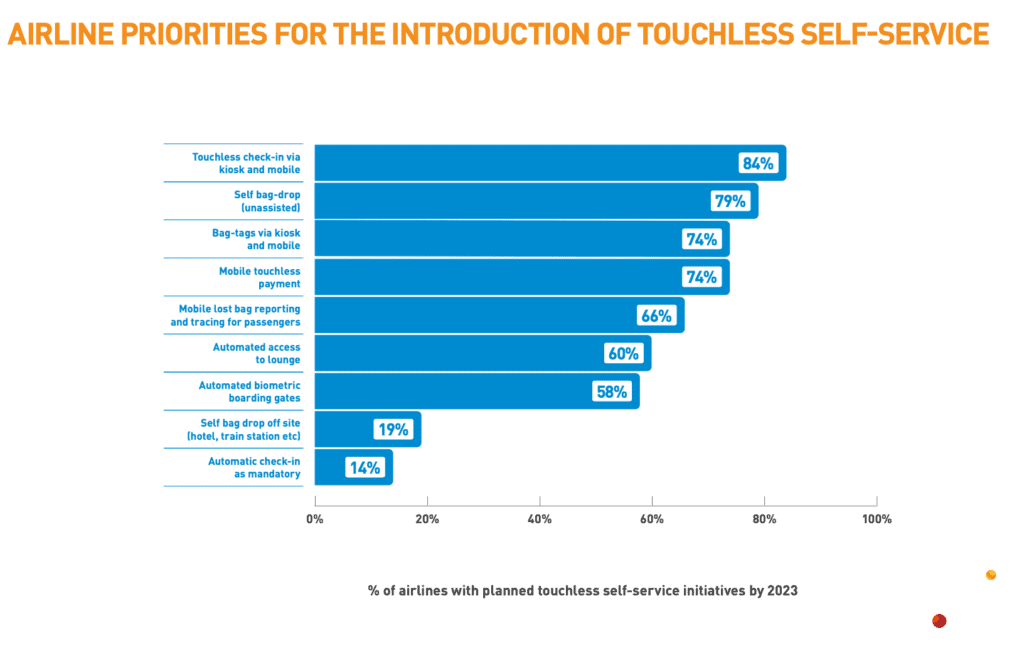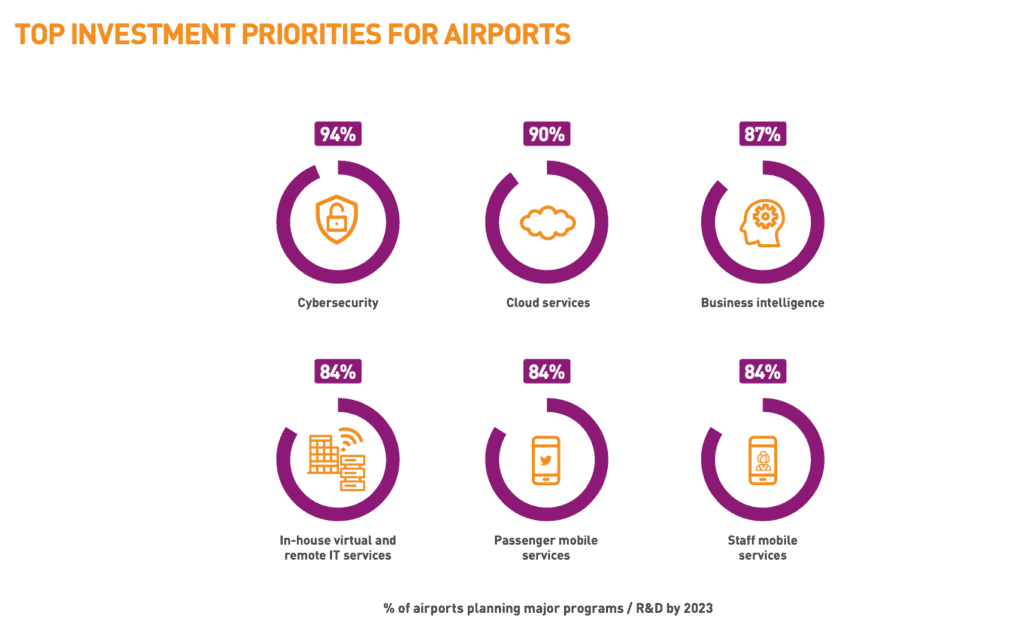SITA Report Charts Increased Airline Investment in Touchless Tech and Remote Work
Share

SITA’s 2020 Air Transport IT Insights report reveals that while airlines and airports curbed their spending last year due to COVID-19, the share of funds dedicated to deploying new technology solutions has remained relatively stable.
According to the latest iteration of SITA’s annual Air Transport IT Insights report, key priorities for airlines and airports between 2020 and 2023 are the touchless journey, biometric identity, support for remote workers and adapting to new health and safety protocols.

According to the results of SITA’s yearly survey, 84% of airlines and 89% of airports are prioritizing a completely touchless check-in process, with an accelerated focus placed on mobile services and automated baggage drop-off through 2023. Airports are also investing in automated border control processes to manage social distancing and improve passenger processing efficiency; 71% of airport respondents said they are aiming to have these services in place over the next three years.
Efficiency and security were also cited as key focuses by both parties. Airline priorities are cybersecurity (96%) and cloud services (94%). Likewise, airport investment priorities are cybersecurity (94%), cloud services (90%) and business intelligence (87%).

Virtual and remote IT services, which allow employees to work from home, are also in demand. 86% of airlines surveyed said they want to invest more in ‘in-house virtual and remote IT services,’ and 84% of airports already have major programs or R&D investment plans for in-house remote and virtual IT services by 2023.
“Recovery from COVID-19 will take time and is complex, but we believe that SITA can play a key role in enabling a safer, simpler travel experience for passengers,” said David Lavorel, CEO of Airports & Borders at SITA.

To help rebuild confidence in the safety of air travel, SITA recently launched Health Protect, an IT solution that provides a secure way for airlines to share health information during the pandemic. By combining the functionality of passenger locator forms, health attestations, travel declarations and Electronic Travel Authorization (ETA), it gives passengers the certainty that they have the right documents before departure.
Health Protect integrates with existing airport passenger processing systems to verify a traveler’s health status at each point in the journey. Passengers without the required documentation to fly, or those considered high risk, will be unable to check-in for their flight, reducing crowding at the airport.
The solution seamlessly integrates with multiple digital health passports, such as AOK, CommonPass, IATA, SimplyGo, bridging the gap between them.

The need for health passports in the future raises some questions about data privacy protection standards. Jeremy Springall, VP, SITA At Borders, said that ensuring privacy is a priority. “We need to ensure that all of the stakeholders involved in that health information only access what they need and keep hold of that data only for as long as necessary,” he explained. “What we’re looking for is certified confirmation that an individual has been tested that’s linked back to their identity, so we can manage it in a way that doesn’t require much sharing of information at all.”
“I think different governments will have different [data protection] requirements, and that’s part of the challenge that we’re going to have to work on over the coming months,” he added.


